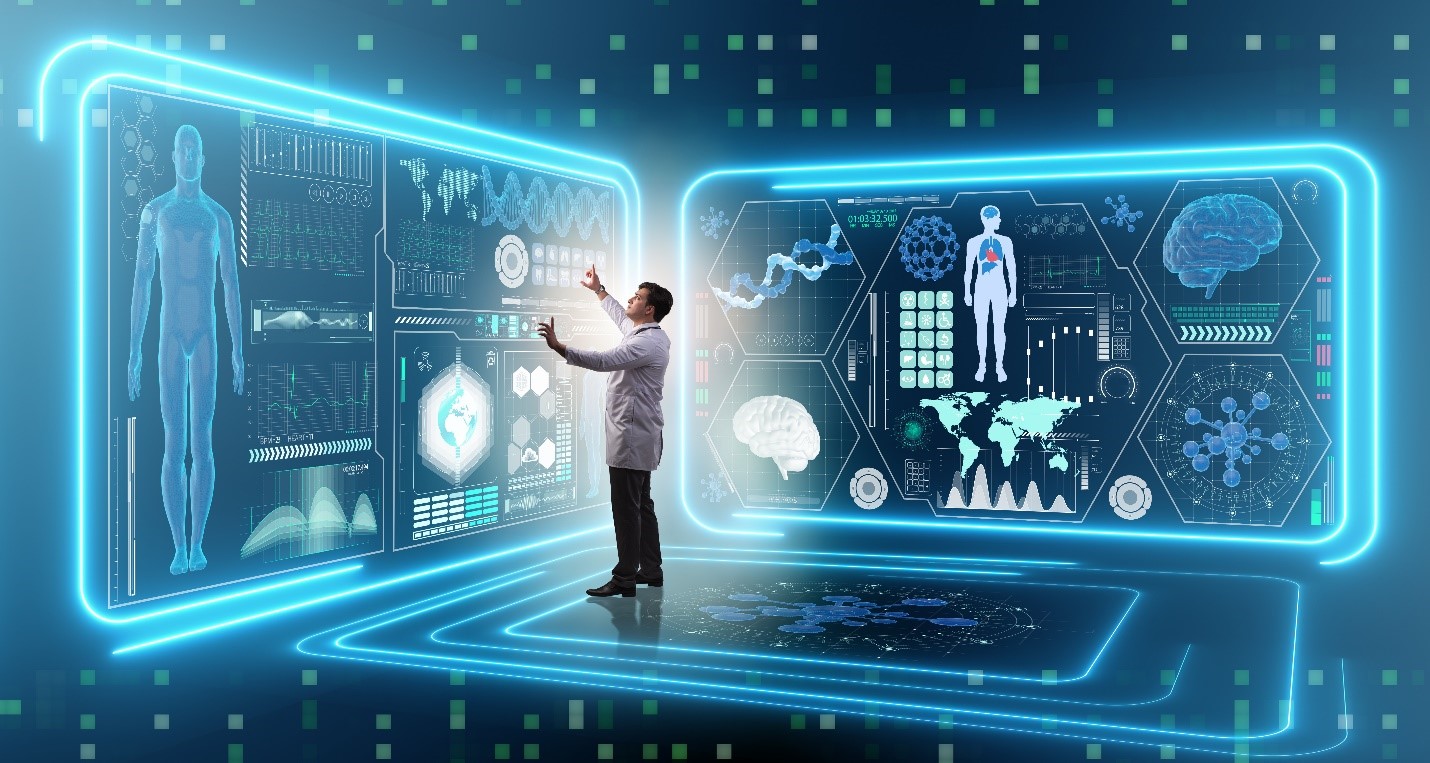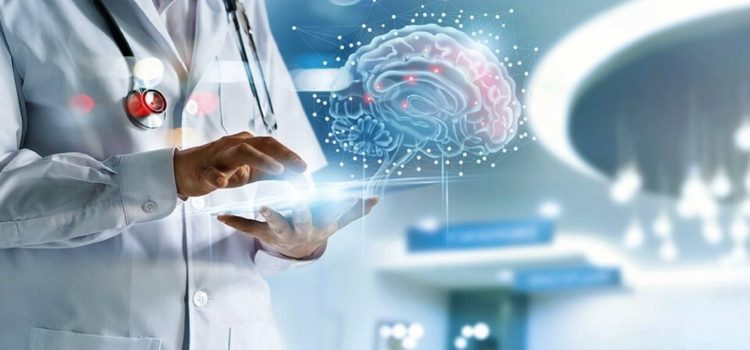
How AI is Revolutionizing Mental Health Diagnostics
In recent years, artificial intelligence (AI) has emerged as a transformative force across various sectors, from healthcare to finance. One of the most promising and impactful applications of AI is in the field of mental health diagnostics.
With mental health disorders affecting millions globally, the integration of AI into mental health diagnostics offers the potential to revolutionize how these conditions are identified, understood, and treated. This article delves into the multifaceted ways AI is reshaping mental health diagnostics, highlighting the benefits, challenges, and future prospects.
The Current State of Mental Health Diagnostics
Mental health diagnostics traditionally relies on clinical assessments, self-reported questionnaires, and observations by healthcare professionals. These methods, while valuable, are often subjective and can vary significantly between practitioners. The complexity of mental health disorders, which often present with overlapping symptoms, further complicates accurate diagnosis. Moreover, the stigma surrounding mental health can lead to underreporting of symptoms, hindering timely and appropriate intervention.
The Role of AI in Mental Health Diagnostics
AI, with its ability to analyze vast amounts of data and identify patterns that may not be apparent to the human eye, offers a promising solution to many of the challenges faced in mental health diagnostics. Here are some key ways AI is making a difference:
1. Enhanced Data Analysis
AI algorithms can process and analyze large datasets quickly and accurately. In mental health diagnostics, this means AI can sift through electronic health records, genetic data, and even social media activity to identify patterns and correlations associated with mental health conditions. For example, machine learning models can analyze speech patterns, facial expressions, and text inputs to detect early signs of depression or anxiety.
2. Objective Assessments
One of the significant advantages of AI in mental health diagnostics is its ability to provide objective assessments. Unlike human clinicians, who may have biases or be influenced by external factors, AI systems can offer consistent and unbiased evaluations. This objectivity is particularly crucial in diagnosing conditions like bipolar disorder, where symptoms can be easily mistaken for other mental health issues.
3. Early Detection and Intervention
Early detection is critical in managing mental health disorders effectively. AI systems can monitor and analyze continuous streams of data from wearable devices, smartphones, and other digital platforms to detect early warning signs of mental health issues. For instance, changes in sleep patterns, physical activity, and social interactions can be indicative of mental health deterioration. By identifying these signs early, AI can prompt timely interventions, potentially preventing the escalation of symptoms.
4. Personalized Treatment Plans
AI’s ability to analyze individual data enables the creation of personalized treatment plans tailored to each patient’s unique needs. By considering factors such as genetic predispositions, lifestyle, and treatment history, AI can recommend the most effective therapies and medications. This personalized approach not only improves treatment outcomes but also reduces the trial-and-error process often associated with mental health treatment.
5. Reducing the Burden on Healthcare Systems
Mental health professionals are often overwhelmed by the sheer volume of patients and the time-consuming nature of traditional diagnostic methods. AI can alleviate some of this burden by automating routine assessments and providing preliminary diagnoses. This allows clinicians to focus more on patient care and complex cases, ultimately improving the overall efficiency of mental health services.

Real-World Applications and Success Stories
Several AI-driven tools and platforms have already demonstrated their potential in revolutionizing mental health diagnostics. For example:
- Woebot: An AI-powered chatbot that uses cognitive-behavioral therapy (CBT) techniques to provide mental health support. Woebot can engage in conversations with users, track their mood, and offer evidence-based strategies to manage mental health issues.
- Mindstrong Health: This platform uses AI to analyze data from smartphone usage, such as typing speed and patterns, to detect changes in cognitive function and mood. Mindstrong Health aims to provide early warning signs of mental health deterioration, enabling timely intervention.
- Ginger: An on-demand mental health support platform that combines AI with human therapists. Ginger’s AI algorithms assess users’ needs and match them with appropriate therapists, ensuring timely and personalized care.
Challenges and Ethical Considerations
While the potential of AI in mental health diagnostics is immense, several challenges and ethical considerations must be addressed:
1. Data Privacy and Security
The use of AI in mental health diagnostics involves the collection and analysis of sensitive personal data. Ensuring the privacy and security of this data is paramount. Robust data protection measures and compliance with regulations such as the General Data Protection Regulation (GDPR) are essential to maintain patient trust.
2. Bias in AI Algorithms
AI algorithms are only as good as the data they are trained on. If the training data is biased or unrepresentative, the AI system’s diagnostic accuracy may be compromised. Efforts must be made to ensure diverse and representative datasets to minimize bias and improve the reliability of AI-driven diagnostics.
3. Human-AI Collaboration
AI should complement, not replace, human clinicians. The integration of AI into mental health diagnostics should be seen as a tool to enhance clinical decision-making rather than a substitute for human expertise. Collaborative efforts between AI developers and mental health professionals are crucial to ensure the effective and ethical use of AI in this field.
4. Accessibility and Equity
Ensuring equitable access to AI-driven mental health diagnostics is essential. Efforts must be made to bridge the digital divide and ensure that marginalized and underserved populations can benefit from these advancements. This includes addressing issues related to affordability, internet access, and digital literacy.
The Future of AI in Mental Health Diagnostics
The future of AI in mental health diagnostics looks promising, with ongoing advancements in technology and research. Here are some potential developments to watch for:
1. Integration with Virtual Reality (VR)
Combining AI with VR technology could create immersive and interactive diagnostic tools. VR environments can simulate real-life scenarios, allowing AI to assess patients’ responses and behaviors in a controlled setting. This could provide valuable insights into conditions such as post-traumatic stress disorder (PTSD) and social anxiety.
2. Natural Language Processing (NLP) Advancements
Improvements in NLP can enhance AI’s ability to understand and analyze human language. This could lead to more sophisticated chatbots and virtual therapists capable of engaging in nuanced conversations and providing more accurate assessments.
3. Genomic and Biomarker Analysis
AI’s ability to analyze genetic and biomarker data could revolutionize the understanding of mental health disorders’ biological underpinnings. This could pave the way for more precise diagnostics and targeted treatments based on an individual’s genetic makeup.
4. Collaborative Global Networks
The establishment of global networks and collaborations can facilitate the sharing of data and knowledge, accelerating the development of AI-driven mental health diagnostics. Collaborative efforts can also help address cultural and regional variations in mental health, ensuring more inclusive and effective solutions.
AI is poised to revolutionize mental health diagnostics by offering objective assessments, early detection, personalized treatment plans, and reducing the burden on healthcare systems. While challenges and ethical considerations remain, the potential benefits of AI in this field are undeniable. As technology continues to advance, AI-driven mental health diagnostics hold the promise of transforming the way mental health disorders are identified and treated, ultimately improving the lives of millions worldwide.










